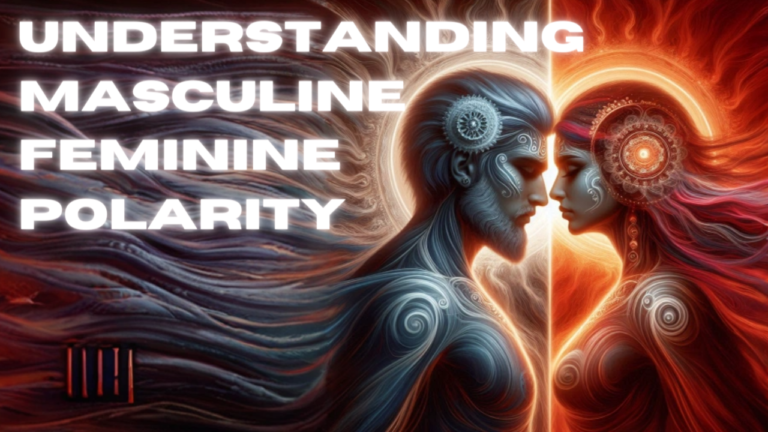How Hiking Alone in Nature Makes You a Better Man

I just returned from a three-day solo backpacking trip, hiking alone into the Canadian outback.
When most people think about hiking, they imagine a leisurely stroll down a well-maintained park trail. They might see some nice fauna, a few birds, snap some selfies and return to the parking lot.
This is not the sort of hiking I’m talking about. I’m doing through-hikes and multi-day camping treks.
When I go to the woods I carry around fourty pounds of camping and survival gear on my back. I’m no bush crafter by any means, but I’m not hiking for an hour in the city park.
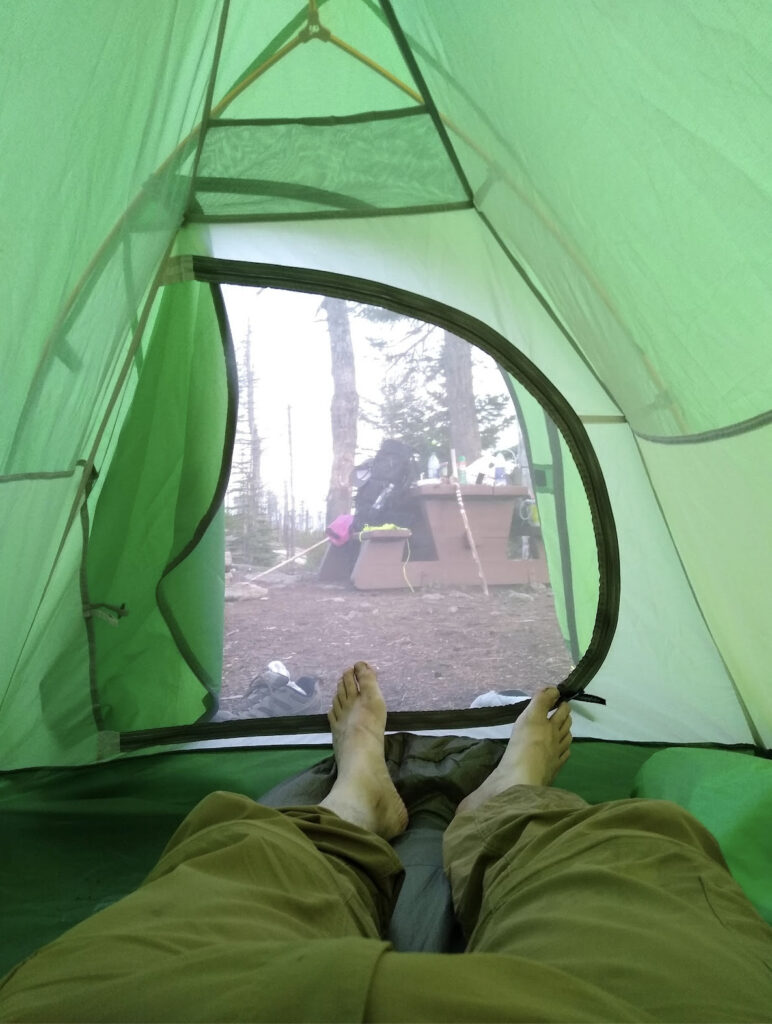
On my last trip, I walked about 20 kilometres ( 13 miles) over three days, with about 1400 meters of altitude gain, through a wilderness that is inhabited by snakes, coyotes, mountain lions and bears.
I loved every minute of it. In fact, I found it more fun than having sex.
What to carry for backcountry hiking alone
In my backpack, I carry many items, but the main ones are:
- Tent
- Sleeping bag
- Sleeping pad
- Water filter
- First aid kit
- Food (1.5 pounds per day)
- Base layers, rain gear, puffy jacket (it can get cold up in the mountains)
- Fishing rod
- Hand saw
- Leatherman knife
- Camp chair (2 pounds heavy but a luxury)
- And other miscellaneous stuff
My entire kit cost me about $600 USD, though you can easily spend thousands. The general rule is the more you spend, the smaller and lighter the items.
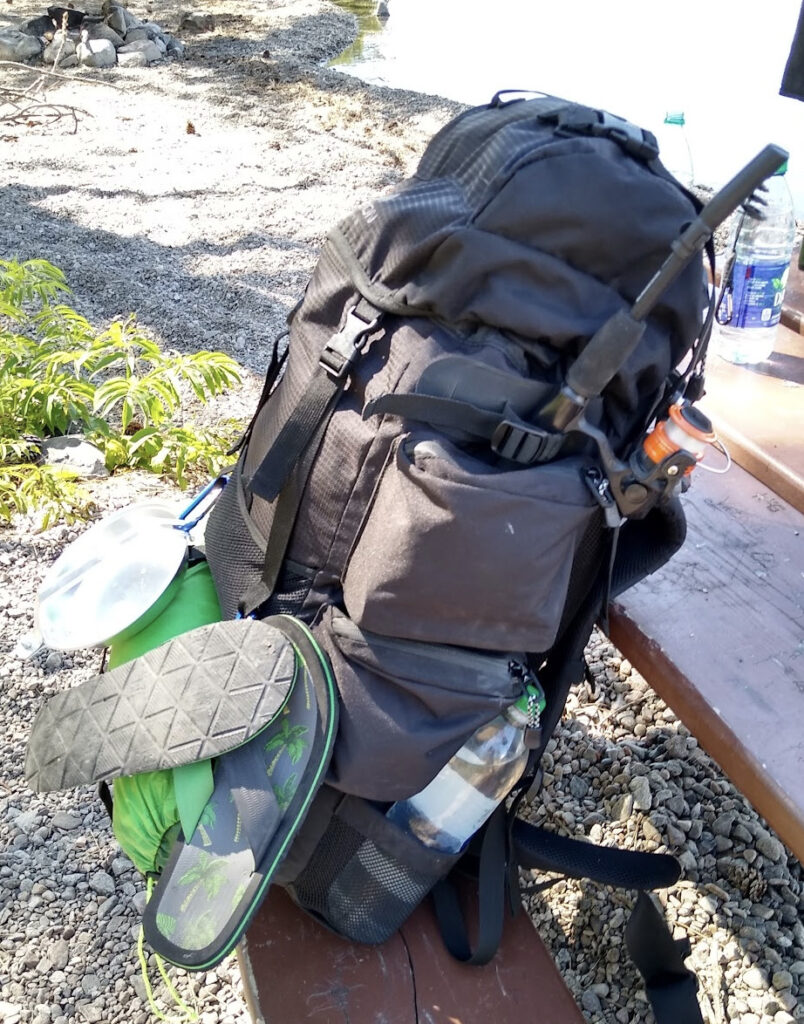
I’m working on getting my base weight down but I usually end up at about 40 pounds with three litres of water included.
I was almost murdered by rattlesnakes
On my latest trip, I went on a five-hour hike to Baker Lake in Okanagan Mountain Park, BC, Canada.
About one hour out from the campsite I dropped my phone, shattering the screen and rendering it nearly useless.
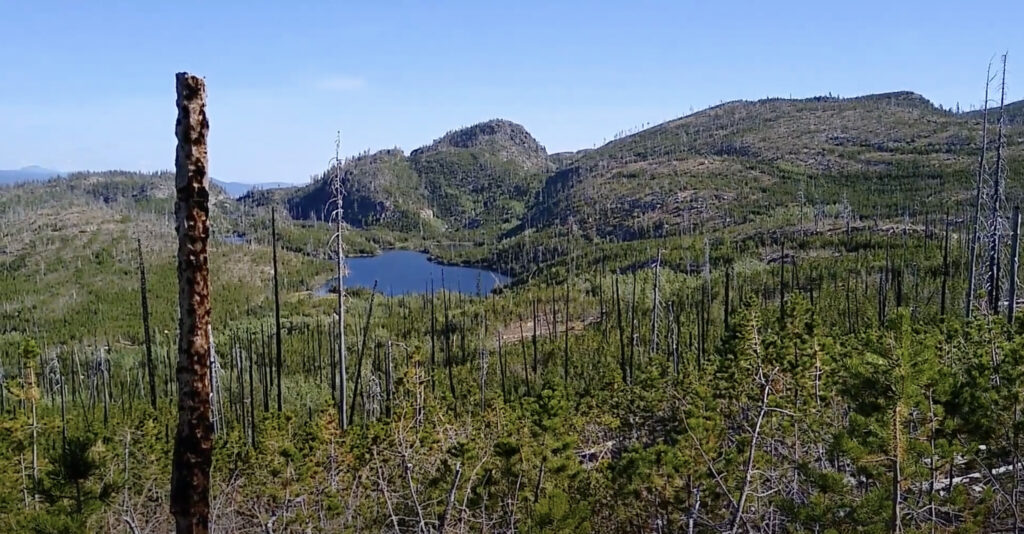
That meant no GPS, no text messages, and none of my downloaded tutorials on knots for bear bags, fishing, and general camping as they were all on my phone.
I had printed out all of my maps and camping knots and then forgot them at home. So there I was a five-hour walk into the deep woods, alone, tired, and a bit stressed out.
With night falling I set up my tent. Nobody had been at this site for a very long time and I was completely alone in the wilderness.
Alone except for the four-foot-long rattlesnake that took ten minutes to slither through my campsite. I managed to get a picture of it before my phone glitched out.
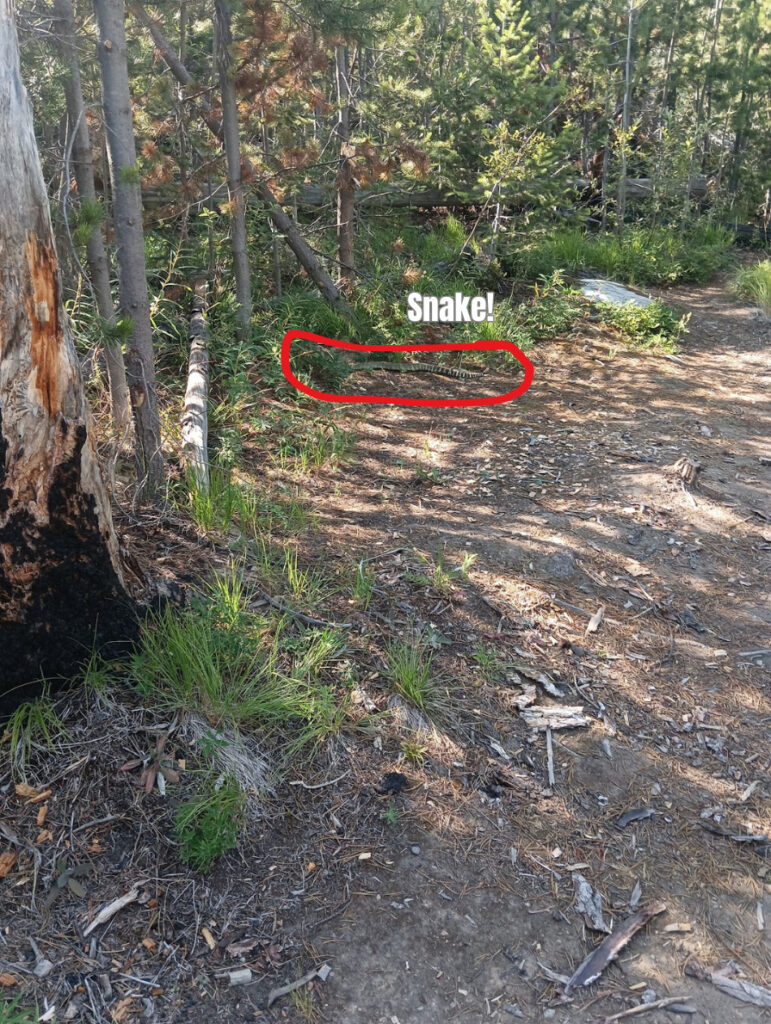
As I was looking for a suitable place to hang my bear bag (a high tree where bears can’t get your food) I nearly stepped on a second rattlesnake.
It rattled so I screeched like a twelve year old girl and leapt out of my skin.
It could easily have bitten me, and I would have been fucked. I thanked that snake and returned to camp, totally fried from exertion and adrenaline.
That night I slept fretfully, waking up as various forest animals ran around and over my tent, wondering if the bears were going to get my food, or if I was going to step on another rattlesnake, or if hillbillies were coming to rape and cannibalize me.
In the morning I sat alone on a rock overlooking the pristine, mist-covered lake, watching the fish jump, listening to the loons cry, and being incredibly grateful.

Then I packed everything up and hiked another two hours to the next campsite to do it all over again.
When I emerged from the forest three days later I was filthy, tired, hungry, and blistered. I lost two pounds.
I plan to do it all over again in a few weeks in a different national park.
Here’s how backpacking alone in nature can benefit you as a man
Adrenaline and Endorphin Release: Engaging in any dangerous activity, even something seemingly peaceful as hiking in the backcountry, releases adrenaline and endorphins. This produces a sense of euphoria, improving your mood and reducing stress.
Boosting Confidence: Conquering challenging or risky situations leads to a feeling of accomplishment. This compels you to push your limits, overcome your fears, and develop a stronger belief in your nascent abilities.
Building Resilience: Experiencing and overcoming danger builds resilience and mental toughness. It teaches you to adapt to unexpected situations, manage fears, and handle stressful situations.
Mindfulness and Focus: Facing danger requires intense concentration and focus on the present moment. Activities that demand your full attention, such as backcountry hiking, promote mindfulness and alleviate worries about past or future events.
Increased Self-Awareness: Challenging situations provide opportunities for you to understand your emotional and psychological responses better. It allows you to explore your limits and identify areas where focus will increase personal growth.
Embracing Uncertainty: Dealing with danger involves uncertainty, and learning to accept and embrace uncertainty can help you develop a more flexible and adaptive mindset in other areas.
Achieving Flow State: Facing danger or activities that require skill and focus leads to a state of “flow,” where you become fully absorbed in your activity, losing track of time and worries. More flow experiences mean increased happiness and life satisfaction.
Empowerment and Control: Confronting danger provides a sense of empowerment and control over your life. It allows you to make choices, take calculated risks, and be in charge of your decisions.
Hiking is The Hero’s Journey
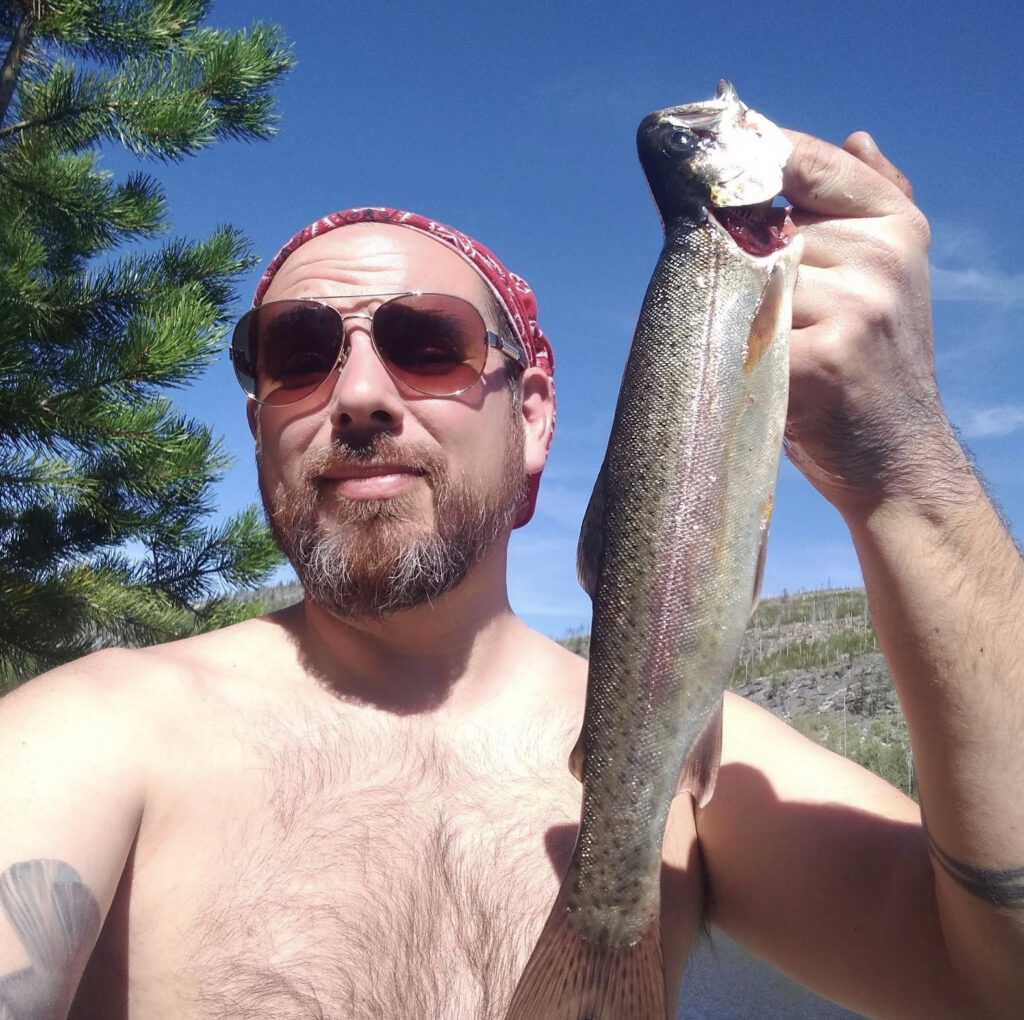
When you venture solo into the woods you’re embarking on a hero’s journey just like your ancestors did.
There’s something primordial about venturing into the unknown, finding your path, conquering challenges, and emerging with newfound wisdom.
In the wilderness, a man can find moments of introspection, away from noise and distraction.
It gives you a sense of purpose. You’re not there to stress about your bills, your women, your career, your balding head or Bitcoin stocks.
All you’re thinking about is putting your right foot ahead of your left, where to find good firewood and drinking water.

Also, hiking alone in the wild gives one a profound sense of humility. You realize you’re just a small part of a grand scheme. There are forces beyond your control.
Hiking also gives you a more profound respect for nature. There’s nothing worse than being five miles deep into the backwoods to find a squirrel with its head stuck in a Coca-Cola bottle.
And nature is incredibly beautiful. It’s really the greatest show on Earth. Netflix, Video games, porn… they have nothing on nature.
Men aren’t meant for cities

Our ancestors were hunters, gathers, nomads, and warriors. We’re not meant to be surrounded by cement, steel and glass.
The only reason a man should be in a city is to:
– Make money
– Meet women
– Or engage in culture
I would argue that man needs neither a lot of money or women. Yes, the guy who teaches men how to make money and get women is telling you that you need either for happiness.
However, I also recognize cities are places to find wealth, meet women, or engage in cultural activities. For example, if you’re a musician with a band there’s no better place to be than a city.
But city folk are far too comfortable and it’s just not natural.

Men need to be challenged in nature for their mental health
If you’re suffering from stress, loneliness, depression, lack of purpose, apathy, or any ailment of the soul, just take a long walk in nature.
Of course, use common sense.
Make sure you know how to use GPS, a map and a compass, have a way to process water, and carry at least a rain jacket. While you shouldn’t be afraid of dying, you don’t want to die of stupidity.
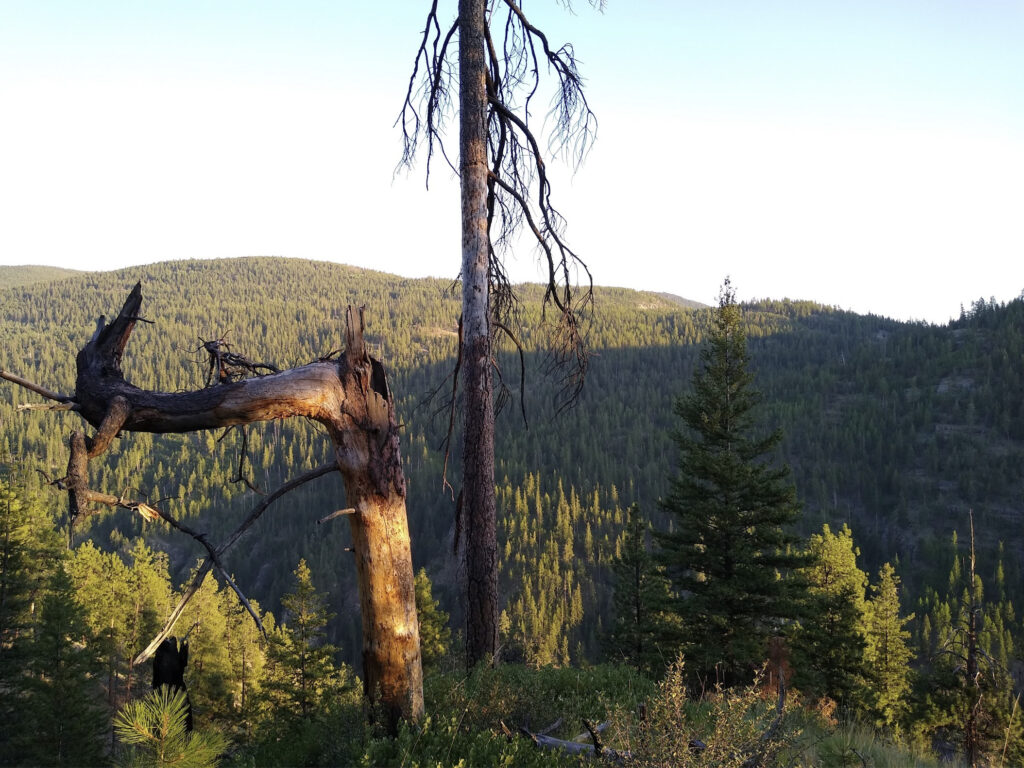
Grab these apps:
All Trails: (GPS with community trail reviews)
GAIA: (GPS for hunters)
Do you love being in nature, hiking, fishing, or camping? Let me know in the comments.


